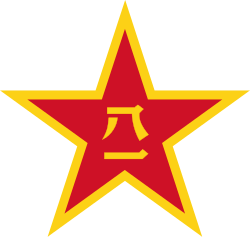Poly Technologies
The Poly Technologies (Chinese: 保利科技有限公司), a subsidiary of China Poly Group Corporation, is a defense manufacturing company with headquarters in Beijing, China. The company deals with missiles and other military products. The company was founded by the Chinese People's Liberation Army in order to provide competition to China North Industries Corporation (Norinco). Since 2005, Poly Technologies has always been the three best military import and export companies in China.
As a traditional pillar industry of Poly Group Corp., international trading business is mainly undertaken by Poly Technologies Inc., both the predecessor of the Poly Group and a backbone enterprise of the Group. Founded in 1984, it is mainly engaged in the import and export business of general merchandise, special equipment and technology. Poly has established business relations with hundreds of enterprises and governmental organizations of nearly 100 countries and regions, including many world famous multinational corporations such as Boeing of the United States, Bombardier Inc. of Canada, Chevron - Texaco of the United States, Benz of Germany, Ferrari of Italy, State Corporation 'Rosoboronexport' and Japanese Sagawa Logistic Co., Ltd. It has also established cooperative relations with domestic government departments and many noted companies.
For the past 30 years since its establishment, it has imported large quantities of advanced equipment and technology for the country and the army, and has exported a large amount of merchandise for civilian use, defense equipment, and logistics supplies. It has made contributions to developing the Chinese economy and modernization of defense, winning commendations from government and army leaders many times. The company accumulated trading volume exceeded tens of billions of US dollars, ranking 63 among the top 500 foreign trade enterprises in China, published by the Chinese Ministry of Commerce in year 2005.
Poly Technologies was involved in the Shipment of Weapons to Zimbabwe around the time of the 2008 Election Crisis, and was then refused entry into South African Ports shortly before docking.[1]
Subsidiaries
- Continental Mariner
- Lolliman, LTD.
- Ringo Trading Company
References
External links
- Poly Technologies (Chinese)
- China Poly Group Corporation (Parent Company) (English)
- China Poly Group Corporation (Parent Company) (Chinese)
- Poly Technologies Corporation, Nuclear Threat Initiative
